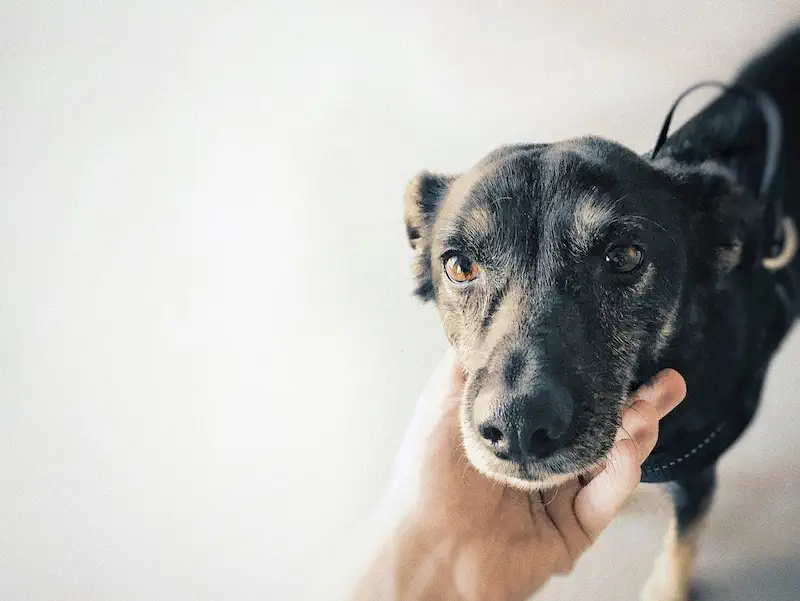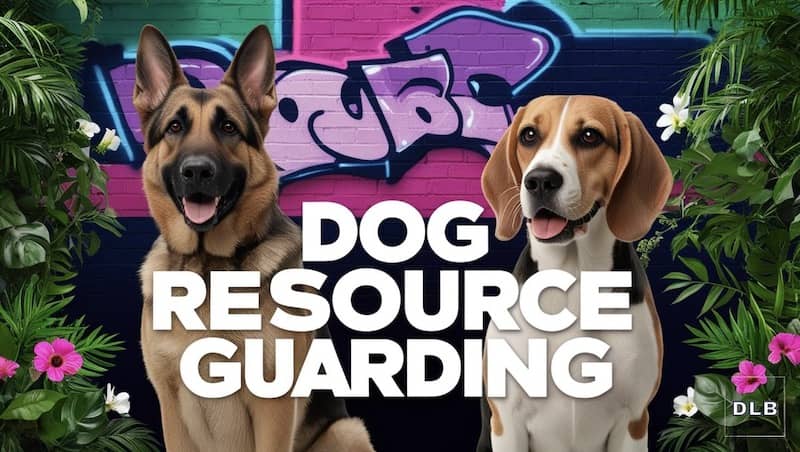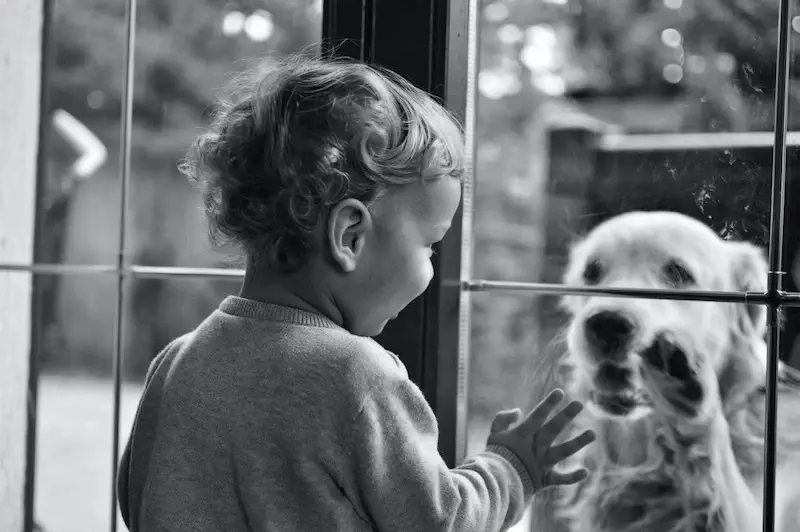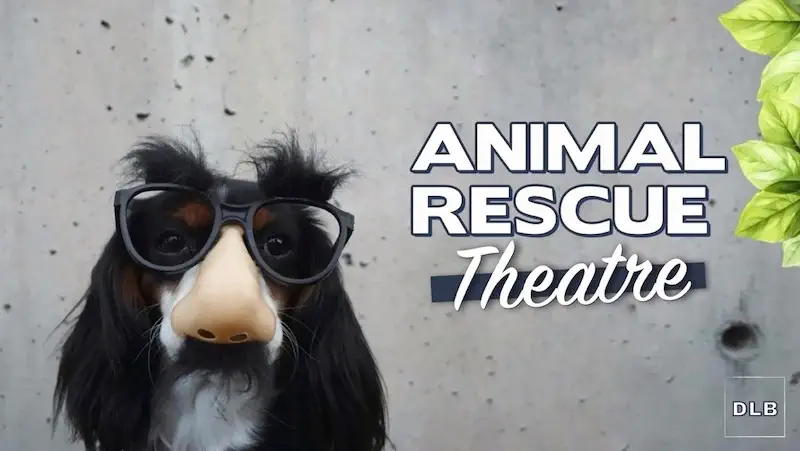Dog Separation Anxiety
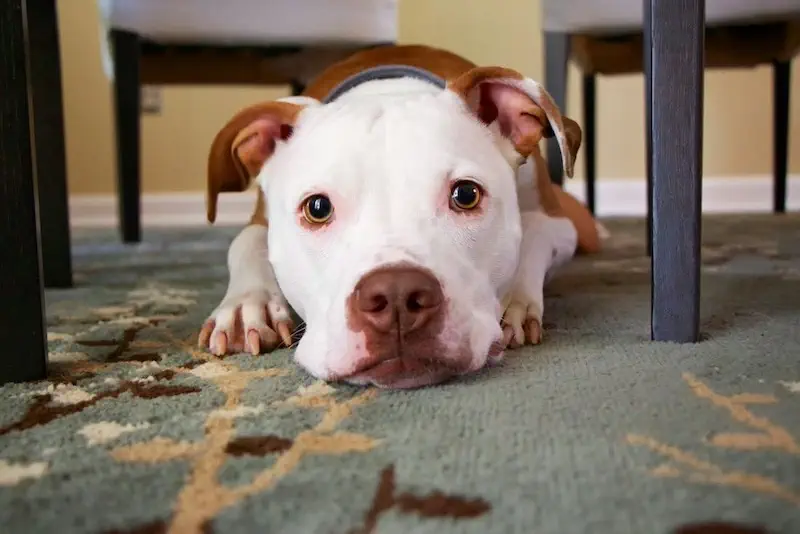
Separation Anxiety in dogs is common - you are not alone. The good news is that dog separation anxiety may be managed, improved, and possibly eliminated completely!
Whether the dog you are trying to help through separation anxiety is from a dog rescue or animal shelter or purchased from a breeder, dog separation anxiety is a common issue many owned dogs and foster dogs face.
WHAT IS DOG SEPARATION ANXIETY?
Separation anxiety in dogs is a condition where a dog exhibits significant stress or anxiety when separated from their owner or the individuals they are attached to. These behaviors typically occur shortly after the owner leaves but may persist for an extended period.
Moderate to severe signs include:
- Excessive barking, howling, whining
- Destructive chewing or digging
- Pacing
- Heavy panting & drooling
- Attempting to escape
- Urinating or defecating indoors despite being house-trained
More minor but important signs to watch for may include:
- Clinginess
- Following the owner excessively
- Wanting to be near/touch the owner
- Showing signs of distress as the owner prepares to leave
WHY DO DOGS HAVE SEPARATION ANXIETY?
Most dogs who display separation anxiety do so because they feel distress when the owner leaves and they believe they are left behind which leads to feelings of stress.
- Feeling of being left behind
- Usually because of the relationship the dog has with the owner
- Lack of other dogs in the home (not always the case, but when a dog comes from a pack then is isolated, this could occur)
- Containment phobia may be paired with separation anxiety, but they do not always go hand in hand
HOW DID MY DOG GET SEPARATION ANXIETY?
The root cause tends to be the relationship between the owner and dog. But, don’t feel bad! The more you nurture a codependent relationship the easier it is for your dog to develop separation anxiety.
Are you wondering, "why does my dog have separation anxiety?" Some common reasons why dogs have separation anxiety include:
- Dog doesn’t get to experience being alone
- “Pandemic dogs” meant dogs were with their owners 24/7
- We allow the dogs to follow us around the house
- High drive dogs need extra physical & mental fulfillment
- The dog had separation anxiety before they came into our home
HOW CAN YOU HELP A DOG WITH SEPARATION ANXIETY?
- Practice separation! Start in short increments - a few seconds, minutes, then 10-20 minutes at a time
- Practice place work (where your dog stays on a bed or cot until released)
- Crate even when you’re home - create positive associations by feeding in the crate, giving high value treats or chews, and crate during short periods of time while you’re home so it’s not automatically associated with being left alone
- Practice leaving without leaving - put on your shoes, grab your keys, mess with the door handle, walk to the curb and back. Expose your dog to these sounds & motions.
- Don’t make a big deal out of leaving. Baby talk causes anxiety (“I’ll be home soon, I promise, it’s ok!”)!
- Fulfill your dog physically & mentally with long walks, place work, play time, mental stimulation, doing nose work.
- Have patience! Separation anxiety takes time, practice, and consistency!
When it comes to separation anxiety for dogs, its root cause tends to be a relationship issue between owner and dog. This does not mean that you should feel guilty if your dog has separation anxiety because it never happens intentionally.
There are cases where you rescue, foster, or adopt a dog from the shelter and this dog already comes with separation anxiety. It might have been the reason why they ended up homeless in the first place.
So it is not always on the current owner when it comes to separation anxiety - again, don’t feel guilty, as it will only send negative signals to the dog and can make the anxiety worse.
Some high-drive dogs (working dogs like Malinois, German Shepherds, Border Collies, etc), tend to have a very busy brain because they are so incredibly smart. If they are not fulfilled physically and mentally, they may start getting anxious which could also lead to signs of separation anxiety.
Dog separation anxiety can be tricky and may take a long time to work with.
Don’t hesitate to contact a professional dog trainer for additional help and to help you identify and overcome your dog’s separation anxiety.
Please note: dog separation anxiety should not be confused with containment phobia which is the fear of being contained and not being able to get out.
Art is the owner of DogFit Dallas a Dallas-based Dog Training Service offering dog training programs in Texas, virtually, and around the United States. With a focus on behavioral training and dog psychology, Dogfit Dallas provides a community of support so we can begin to understand our dogs to be better humans FOR our dogs and BECAUSE of our dogs. Follow DogFit Dallas on Instagram and Facebook.


Helping your dog overcome separation anxiety takes time, practice, and consistency!


